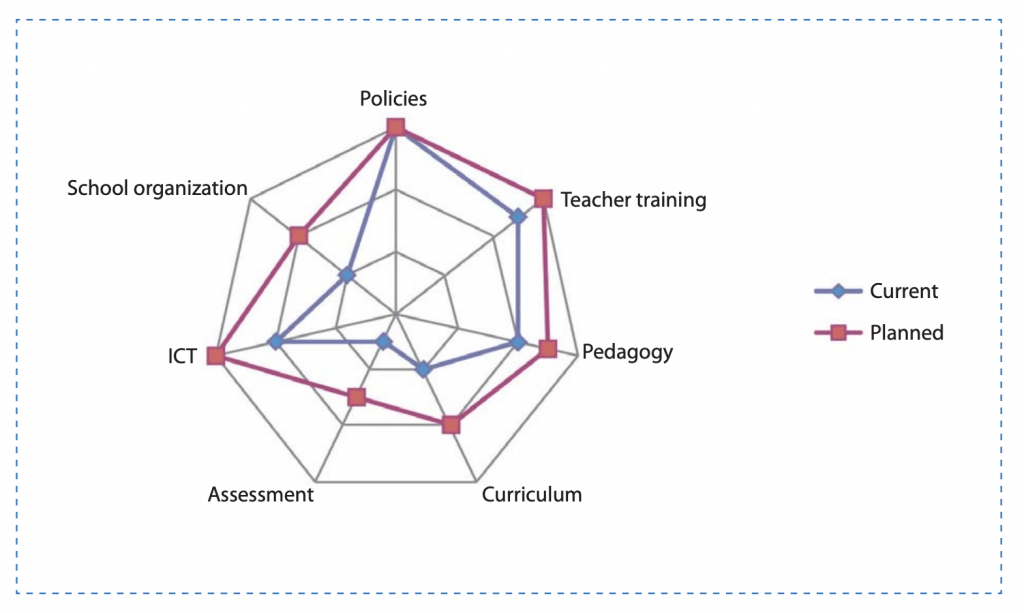In my context (Malawi state school system), in order for technology to be used as a meaningful pedagogical tool teachers, leaders and school administration need to urgently develop their own knowledge and understanding of technology and necessary digital literacy skills. I particularly like the UNESCO ICT competency framework and could see this model being used to inform pre and in-service teacher training.
This framework has been designed to be used by countries with different social and economic conditions and growth strategies. It acknowledges that while countries may share similar goals they may take different paths to achieve those goals. One of my favourite aspects on this framework is that it is designed to value and use the current strengths of countries rather than looking at its deficits.
The diagram below is an illustrated example of how countries can use the framework to localise and tailor teacher competency programmes based on their policies and current educational conditions.
Based on my first hand experience and observation of education in Malawi, I used the framework to create the diagram below. I believe some of Malawi’s strengths exist within their school organisation and national curriculum. Areas I believe that would make the greatest impact would be to focus on developing policies and teacher training programmes.
References
United Nations Educational, Scientific and Cultural Organization (UNESCO). (2011). UNESCO ICT competency framework for teachers. Retrieved from https://unesdoc.unesco.org/ark:/48223/pf0000213475
UNESCO. (2019, September 30). Competency Framework for Teachers (long version) [Video]. YouTube. https://www.youtube.com/watch?v=FG284HgGRvg



Leave a Reply